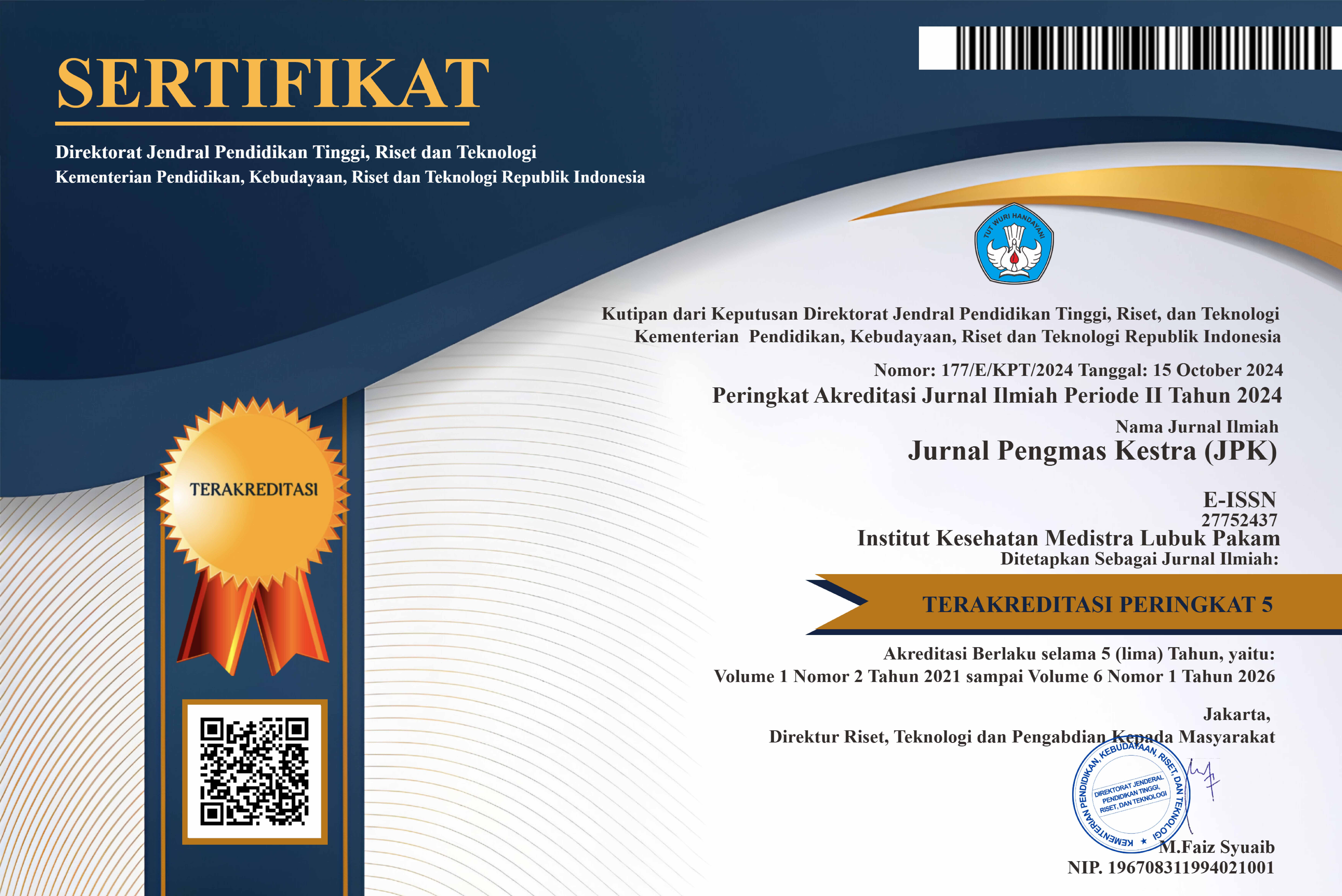BEHAVIOR OF ELEMENTARY CHILDREN BEFORE AND AFTER EDUCATION ABOUT THE DANGEROUS SNACKING
DOI:
https://doi.org/10.35451/jpk.v2i1.1138Keywords:
Behavior; Education; Danger of Snacking CarelesslyAbstract
Elementary school age children are a group of children who are prone to buying food or snacks carelessly because elementary school age children usually only see food from its shape, color and taste without seeing whether the food is good for consumption or not. If elementary school children consume unhealthy food, it can have an impact or effect on health, for example it can cause diarrhea or other digestive system disorders, besides that it can have an effect on their growth and development because the elementary school period is a time when a child needs good and healthy nutrition. . The purpose of this Community Service (PKM) is to provide education to elementary school children to change their behavior not to snack randomly. The PKM activity was carried out at SD N 104242 Lubuk Pakam for 3 days, to see the behavior before and after being given education about the impact of snacking indiscriminately, by distributing questionnaires and observing PKM participants. The results of the PKM show that before education the majority of knowledge is lacking, namely 52.3%, bad attitudes are 70.1% and actions with frequent snacks are 59.7%, and after education most of the knowledge becomes good up to 53%, attitudes become good 68.6% and the act of buying snacks indiscriminately became infrequent up to 58.2%. From the results of this community service, it can be concluded that the behavior of elementary school children is getting better, it is recommended for teachers or parents to keep an eye on their children so they don't snack randomly.
Downloads
Published
Issue
Section
License
Copyright (c) 2022 JURNAL PENGMAS KESTRA (JPK)

This work is licensed under a Creative Commons Attribution 4.0 International License.
Copyright in each article is the property of the Author.




















